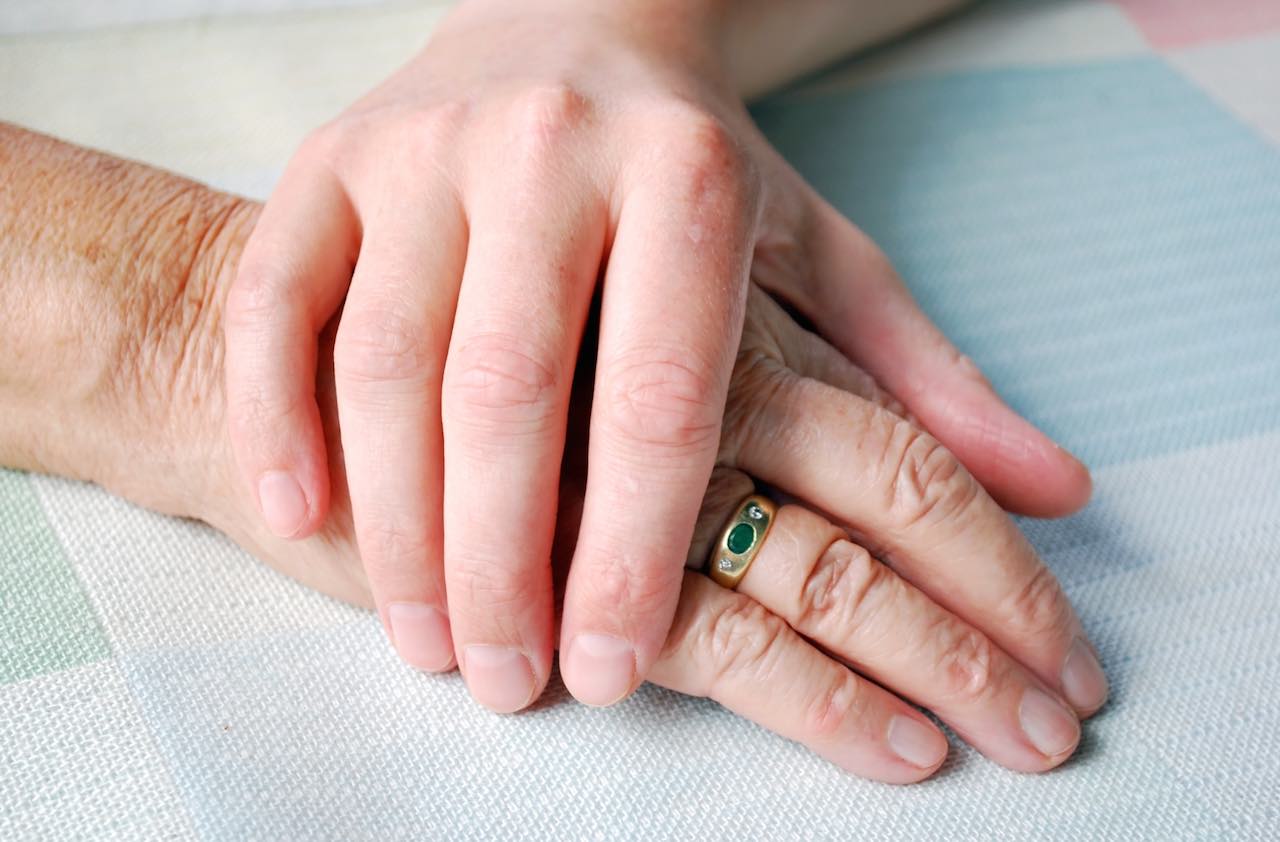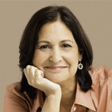Young Entrepreneurs Fill Need in Senior Market
Start-ups focused on baby boomers and seniors strive to help keep an aging population independent and connected.


Profit and prosper with the best of Kiplinger's advice on investing, taxes, retirement, personal finance and much more. Delivered daily. Enter your email in the box and click Sign Me Up.
You are now subscribed
Your newsletter sign-up was successful
Want to add more newsletters?

Delivered daily
Kiplinger Today
Profit and prosper with the best of Kiplinger's advice on investing, taxes, retirement, personal finance and much more delivered daily. Smart money moves start here.

Sent five days a week
Kiplinger A Step Ahead
Get practical help to make better financial decisions in your everyday life, from spending to savings on top deals.

Delivered daily
Kiplinger Closing Bell
Get today's biggest financial and investing headlines delivered to your inbox every day the U.S. stock market is open.

Sent twice a week
Kiplinger Adviser Intel
Financial pros across the country share best practices and fresh tactics to preserve and grow your wealth.

Delivered weekly
Kiplinger Tax Tips
Trim your federal and state tax bills with practical tax-planning and tax-cutting strategies.

Sent twice a week
Kiplinger Retirement Tips
Your twice-a-week guide to planning and enjoying a financially secure and richly rewarding retirement

Sent bimonthly.
Kiplinger Adviser Angle
Insights for advisers, wealth managers and other financial professionals.

Sent twice a week
Kiplinger Investing Weekly
Your twice-a-week roundup of promising stocks, funds, companies and industries you should consider, ones you should avoid, and why.

Sent weekly for six weeks
Kiplinger Invest for Retirement
Your step-by-step six-part series on how to invest for retirement, from devising a successful strategy to exactly which investments to choose.
At age 32, Sherwin Sheik watched his sister, who has multiple sclerosis, search unsuccessfully for good, affordable help through home care agencies. His mother ended up leaving her job as a molecular biologist in Los Gatos, Cal., to care for her. And he knew his beloved uncle, with amyotrophic lateral sclerosis, known as ALS, had repeatedly hired agency caregivers who didn't show up.
Four years ago, Sheik founded the online company CareLinx, which matches families and paid caregivers. By eliminating agency fees, families save an average of $10,000 to $15,000 a year, and caregivers earn more. "Traditional agencies were charging families $25 to $30 an hour while paying caregivers $10 an hour" says Sheik, a former investment banker. Caregivers "weren't being compensated for the hard work they did."
Today, Sheik's grandparents, ages 97 and 93, get daily help from caregivers hired through CareLinx. "I am delighted and proud that Sherwin is devoting himself to helping people who are at a very vulnerable stage of their lives," says his mother, Shahla Sheik, 67.
From just $107.88 $24.99 for Kiplinger Personal Finance
Become a smarter, better informed investor. Subscribe from just $107.88 $24.99, plus get up to 4 Special Issues

Sign up for Kiplinger’s Free Newsletters
Profit and prosper with the best of expert advice on investing, taxes, retirement, personal finance and more - straight to your e-mail.
Profit and prosper with the best of expert advice - straight to your e-mail.
Sheik, now 37, is among a growing number of entrepreneurs in their twenties, thirties and early forties who are developing products and services for seniors. For many, the idea evolves from a personal experience with a parent, grandparent or sibling.
As astute business people, these young entrepreneurs also realize that a swelling-by-the-day older demographic will need their products to stay independent and connected. "Students from the top business schools are setting up companies in this space -- something I haven't seen before," says Stephen Johnston, co-founder of the San Francisco-based Aging 2.0. His company mentors start-ups that focus on baby boomers and seniors.
Mary Furlong, author of Turning Silver Into Gold (FT Press, $25), agrees. "The intellectual talent and business experience of young entrepreneurs migrating into the longevity marketplace is astounding," says Furlong, president and chief executive officer of Mary Furlong & Associates, a company in Lafayette, Cal., that advises clients in the 50-plus market.
Here's a look at senior-focused companies that have young adults at the helm.
Caregiving. As boomers age, so will their caregiving needs. A growing number of seniors do not have children to take on caregiving tasks, and those who do tend to have fewer kids than in the past. (Read Childless Seniors Need to Build a Safety Net.)
Sheik’s CareLinx (www.carelinx.com) gives each family an adviser to shepherd it through the hiring process and for follow-up. The firm vets caregivers, does background checks, manages the payroll and taxes, and insures and bonds the caregiver up to $1 million.
As with CareLinx, Making Care Easier (www.makingcareeasier.com), a free Web site and app, was born out of a personal crisis. At age 35, Harvard Business School graduate Renee Fry was diagnosed with a brain tumor. Her mother temporarily moved across the U.S. to care for her. Three years later, the tumor grew back. This time, Julie, Renee's younger sister, moved to Boston to take on caregiving. Julie had expertise in elder services as marketing director of a large association of home care and hospice providers.
Then the light bulb went off for the siblings, who both hold business degrees. Friends and family were willing to help, but they needed to know how. What was missing was a way to coordinate care, share information and find caregiving products, such as walkers. Making Care Easier, which was launched in April 2014, has 68,000 users. "It's not enough to offer a way to coordinate care, but to connect you to products and services that matter to you," says Fry.
After you fill out a brief online survey to determine your needs, the company sets up a secure family "dashboard." You can send requests for help to friends and family members and share comments, medical information and expenses. Your private site provides checklists and joint calendars.
Finances. Kai Stinchcombe's grandmother had always contributed to one cause or another. As her memory started to decline, though, she lost track of how much she was giving away. Stinchcombe watched the toll those bogus expenses took on his own mother.
His 93-year-old grandmother, who lives independently in Indiana, went from doling out $50 a month to $40 a day. She once wired $2,000 to a stranger who called and claimed to be "needy," and she spent an unnecessary $6,000 on hearing aids. "She is very polite and won't hang up the phone when someone calls," says Stinchcombe, 32. His family didn't want to humiliate her by taking away her bank account or credit card.
So in 2011, along with business partner Claire McDonnell, also then age 28, Stinchcombe conceived of TrueLink (www.truelinkfinancial.com). It is his fourth entrepreneurial venture.
TrueLink is a special Visa card that protects older people from scams and unscrupulous marketers. It recognizes patterns of transactions that other credit cards would permit and blocks them. Such questionable transactions include magazine subscription companies, sweepstakes and misleading deals on TV. "We weren't looking for something in the aging market -- we kind of stumbled into it," Stinchcombe says. "We wanted to solve a problem. But we had to find out if enough people have the problem so we could build a business around it, raise venture capital and hire staff." The answer was "yes." Two-thirds of customers are daughters getting TrueLink for a parent.
End-of-life planning. In 2010, at age 30, Abby Schneiderman decided to create a Web site that provided articles on end-of-life planning. She noticed information sites for brides-to-be, house hunters, expectant parents, baby boomers sending kids to college, and retirees or those planning for retirement. "There was no reason this life stage didn't deserve the same treatment," she says. She and co-founder Adam Seifer created Everplans (www.everplans.com), which offered more than 500 articles on topics such as writing a will and appropriate attire for a funeral.
A year after starting Everplans, Schneiderman's brother died in a car accident. "We had no access to the right paperwork and no idea what my brother would have wanted," she says. "My family was left to make a huge number of complicated, expensive and stressful decisions at a time when we shouldn't have had to."
Schneiderman says she and Seifer realized that they "could create something more powerful and go beyond content to help people get a plan in place ahead of time." They turned Everplans into a platform where people can create, store and share all the important information that their families need in one place -- such as a will, advanced directives, medical records, insurance and names of advisers.
The free version provides access to certain areas of the site. For $75 a year, you can store a wider array of documents.
Communicating. The inspiration for Andreas Forsland's company came after he spent weeks by his mother's bedside in intensive care during the summer of 2012. She was unable to speak as a result of a breathing tube and ventilator, and she could not write, either.
Forsland says he wondered whether he could put sensors into an elegant stone she could hold or wear as a necklace or a bracelet. A swipe upward or a tap on the stone could indicate whatever preprogrammed message he chose -- "I'm hungry" or "Everything is okay." And a downward swipe or two taps might be "I miss you" or "I have to go to the bathroom."
In 2013, Forsland, 40, who lives in Santa Barbara, Cal., co-founded Smartstones (www.smartstones.co). "We help people who are locked in," he says. "They're capable but can't express themselves." The product's original intent was for seniors who had a stroke or a neurological disease such as ALS, but he is also finding interest from parents of children with autism.
Forsland's mother, Sarah, 73, recovered, but she wears the prototype, a stone necklace, and uses it to "speak" daily with her son. The stones use a wireless Internet connection. "It's beautiful and looks like jewelry," she says. "I keep in touch with my son with a gentle swipe or tap, asking 'Are you there?' " When Forsland was recently in Asia, he stayed in touch daily with his mother through their stones. Sarah says it "lowers my level of anxiety knowing I have the stone and can be in touch with Andreas without a cellphone."
When the product comes out later this year -- you can preorder on the site -- you can buy a two pack for yourself and your loved one for $179, or even five stones, perhaps for grandkids or other adult siblings, for $399. Of course, Smartstones is not intended to replace conversation or the cellphone, but it is useful to convey simple messages. "We are making it easier to communicate with family, friends and care providers," Forsland says.
Profit and prosper with the best of Kiplinger's advice on investing, taxes, retirement, personal finance and much more. Delivered daily. Enter your email in the box and click Sign Me Up.

-
 How Much It Costs to Host a Super Bowl Party in 2026
How Much It Costs to Host a Super Bowl Party in 2026Hosting a Super Bowl party in 2026 could cost you. Here's a breakdown of food, drink and entertainment costs — plus ways to save.
-
 3 Reasons to Use a 5-Year CD As You Approach Retirement
3 Reasons to Use a 5-Year CD As You Approach RetirementA five-year CD can help you reach other milestones as you approach retirement.
-
 Your Adult Kids Are Doing Fine. Is It Time To Spend Some of Their Inheritance?
Your Adult Kids Are Doing Fine. Is It Time To Spend Some of Their Inheritance?If your kids are successful, do they need an inheritance? Ask yourself these four questions before passing down another dollar.
-
 When Tech is Too Much
When Tech is Too MuchOur Kiplinger Retirement Report editor, David Crook, sounds off on the everyday annoyances of technology.
-
 What Is AI? Artificial Intelligence 101
What Is AI? Artificial Intelligence 101Artificial intelligence has sparked huge excitement among investors and businesses, but what exactly does the term mean?
-
 457 Plan Contribution Limits for 2026
457 Plan Contribution Limits for 2026Retirement plans There are higher 457 plan contribution limits in 2026. That's good news for state and local government employees.
-
 Medicare Basics: 12 Things You Need to Know
Medicare Basics: 12 Things You Need to KnowMedicare There's Medicare Part A, Part B, Part D, Medigap plans, Medicare Advantage plans and so on. We sort out the confusion about signing up for Medicare — and much more.
-
 The Seven Worst Assets to Leave Your Kids or Grandkids
The Seven Worst Assets to Leave Your Kids or Grandkidsinheritance Leaving these assets to your loved ones may be more trouble than it’s worth. Here's how to avoid adding to their grief after you're gone.
-
 SEP IRA Contribution Limits for 2026
SEP IRA Contribution Limits for 2026SEP IRA A good option for small business owners, SEP IRAs allow individual annual contributions of as much as $70,000 in 2025, and up to $72,000 in 2026.
-
 Roth IRA Contribution Limits for 2026
Roth IRA Contribution Limits for 2026Roth IRAs Roth IRAs allow you to save for retirement with after-tax dollars while you're working, and then withdraw those contributions and earnings tax-free when you retire. Here's a look at 2026 limits and income-based phaseouts.
-
 SIMPLE IRA Contribution Limits for 2026
SIMPLE IRA Contribution Limits for 2026simple IRA For 2026, the SIMPLE IRA contribution limit rises to $17,000, with a $4,000 catch-up for those 50 and over, totaling $21,000.